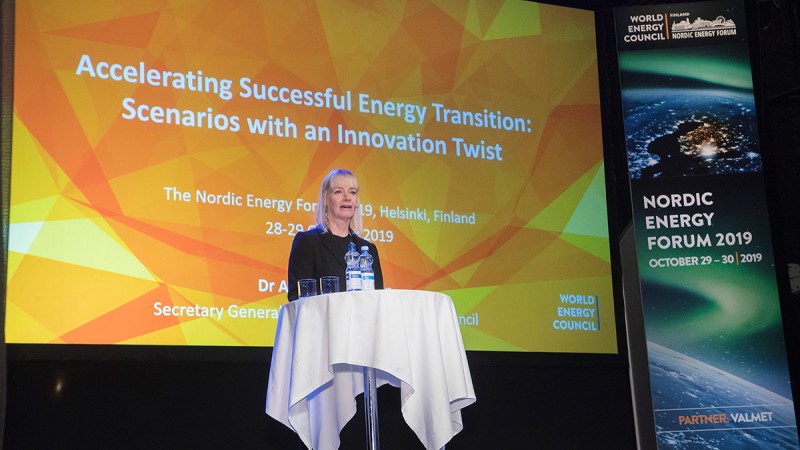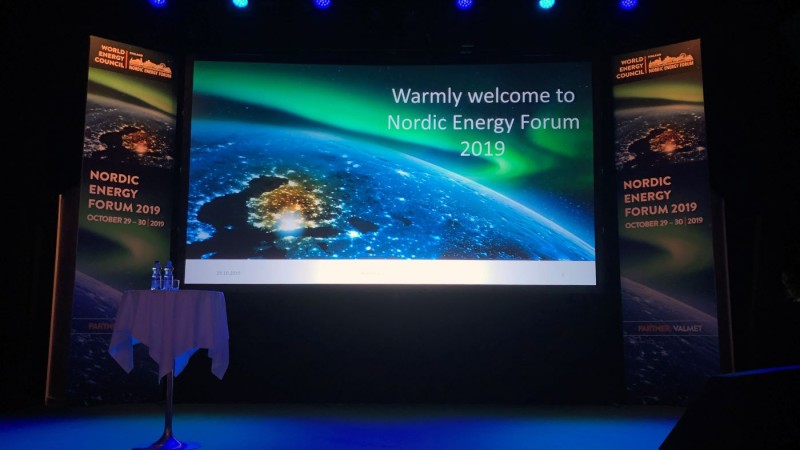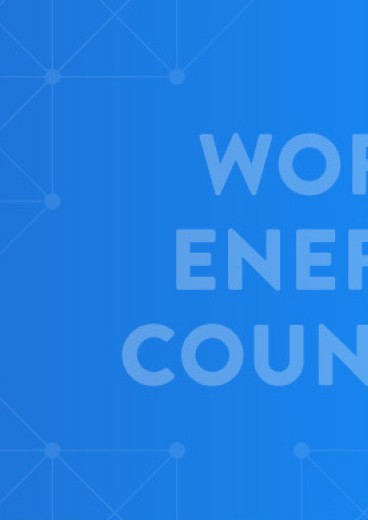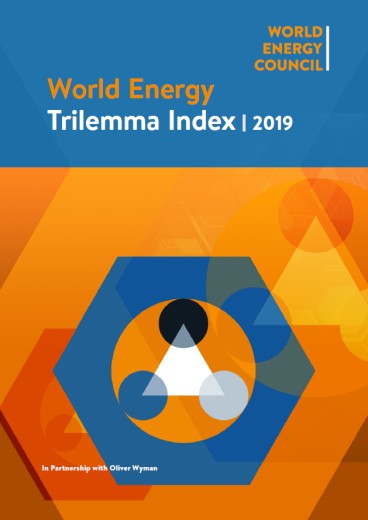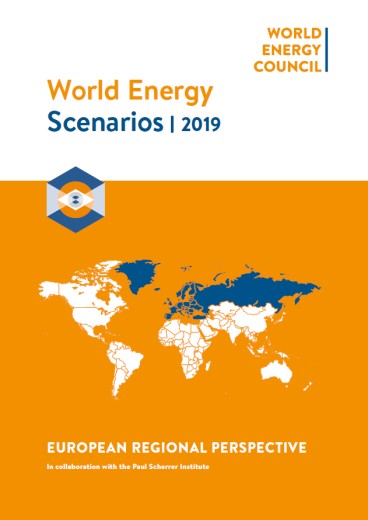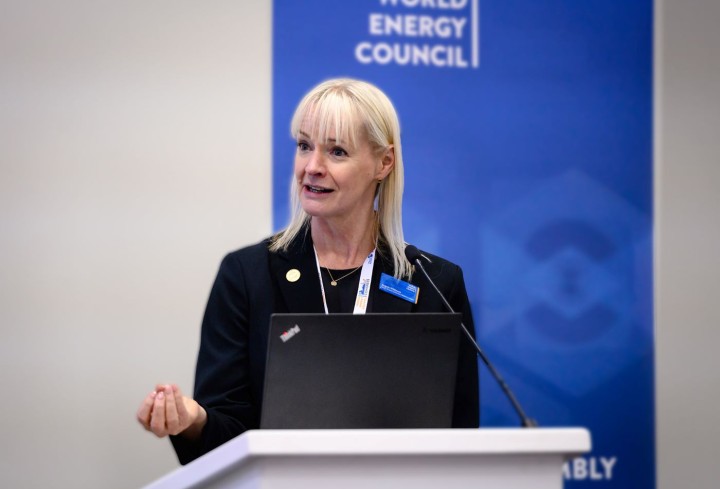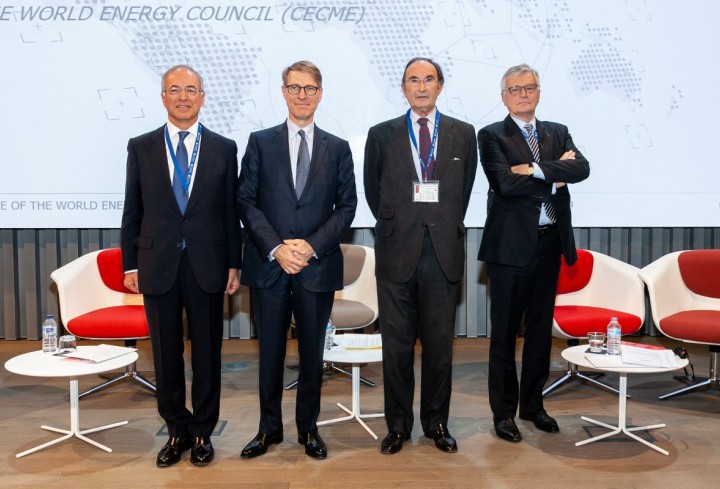Nordic Energy Forum 2019: Accelerating the energy transition by innovating and engaging consumers
The second Nordic Energy Forum in Helsinki took place on 29-30 October 2019, offering decision-makers and experts the opportunity to meet and discuss topical issues, as well as share their views on future energy scenarios, policy choices, markets, innovations and business models. The second day of the forum looked at the Northern European gas markets, innovative technologies and new business opportunities.
The Nordic Energy Forum presented over 40 speakers, including Angela Wilkinson, the new Secretary General of the World Energy Council; Artur Runge Metzger, Director of 'Climate Strategy, governance and emissions from non-trading sectors', Directorate-General Climate Actions of the European Comission and Paula Pinho, Head of unit and acting Director at the Directorate-General Energy in the European Commission.
“There can be no successful energy transition without social involvement and public acceptance,” stated Dr. Angela Wilkinson, Secretary General of the World Energy Council..
Digitalisation offers many opportunities for prosperity, but it also presents challenges.“We need new capabilities for governing dynamic resilience to respond rapidly and flexibly to unforeseen climate and cybersecurity challenges, as well as to enable a reliable and sustainable energy transition,” Dr. Wilkinson commented.
Challenges within Europe include funding investments for energy systems. The World Energy Council sees Integrated energy-industrial strategies and sector-coupling policies pivotal to faster, deeper and affordable decarbonisation.
EU seeks fair and sustainable climate neutrality
Artur Runge-Metzger, Director, Climate Strategy, Directorate-General for Climate Action, European Commission, proposed various pathways towards a climate-neutral Europe by 2050. The climate strategy that was presented last year aims to ensure an economically feasible and socially just transition towards a climate-neutral society. The strategy also seeks to foster the competitiveness of the EU economy and companies in global markets.
Runge-Metzger acknowledges that achieving these aims will be challenging, but he believes that they are still achievable.
“Moving towards a net-zero greenhouse gas economy can only be successful with citizens that embrace change, get engaged and experience it as beneficial for their lives and that of their children,” he emphasises.
According to Runge-Metzger, both personal lifestyle choices and Improved planning and public infrastructure can have a real impact on combating climate change while at the same time improving the quality of life. He also sees opportunities to strengthen the role of regions and cities and towns in order to accelerate the changes sought in the EU.
Paula Pinho, Acting Director in Directorate A, Energy Policy, European Commission, presented the EU’s national energy and climate plans covering all sectors. For the first time each country is obligated to report on its current status and goals in five dimensions, from energy efficiency to the share of renewable energy.
“All 28 countries submitted their draft plans within the timeframe. Although none of them were perfect, all of the plans had good practices that could be recommended to other Member States,” Pinho clarifies.
Nordic energy markets as a model for the rest of the world
Markus Hübner, Chair of the Electricity Market Group at the Nordic Council of Ministers, envisioned the Nordic region as the world’s most competitive, innovative and consumer-oriented electricity market. The Nordic countries already serve as an example for the rest of the world in generating carbon-free electricity. In addition, the Nordic countries together with Estonia, Latvia and Lithuania already share a common electricity exchange owned by their national grids.
“There still remains plenty to do, especially in strengthening electricity transmission links and coordinating Data Hub cooperation, for example,” Hübner points out.
Demand for electricity is expected to continue to increase as a result of, among other things, growth of population and continued construction, the electrification of traffic and energy intensive data centres, and Sweden is already experiencing shortages of electricity. The need for time and capital-intensive network investments was confirmed in a panel discussion, in which Maria Wetterstrand, Managing Director of Miltton Purpose, Jouni Haikarainen, Senior Vice President at Gasum, and Tiina Tuomela, Executive Vice President at Fortum Corporation, concluded that the starting points for the Nordic region were otherwise in many regards good.
Room for improvement was also noted in the pan-Nordic electricity retail market, as well as in more consumer-oriented price information that would guide consumption in a meaningful way. Harmonising regulatory requirements in different countries, for example through the Nordic Council of Ministers, would allow for faster innovation across the region.
Find out more here!

